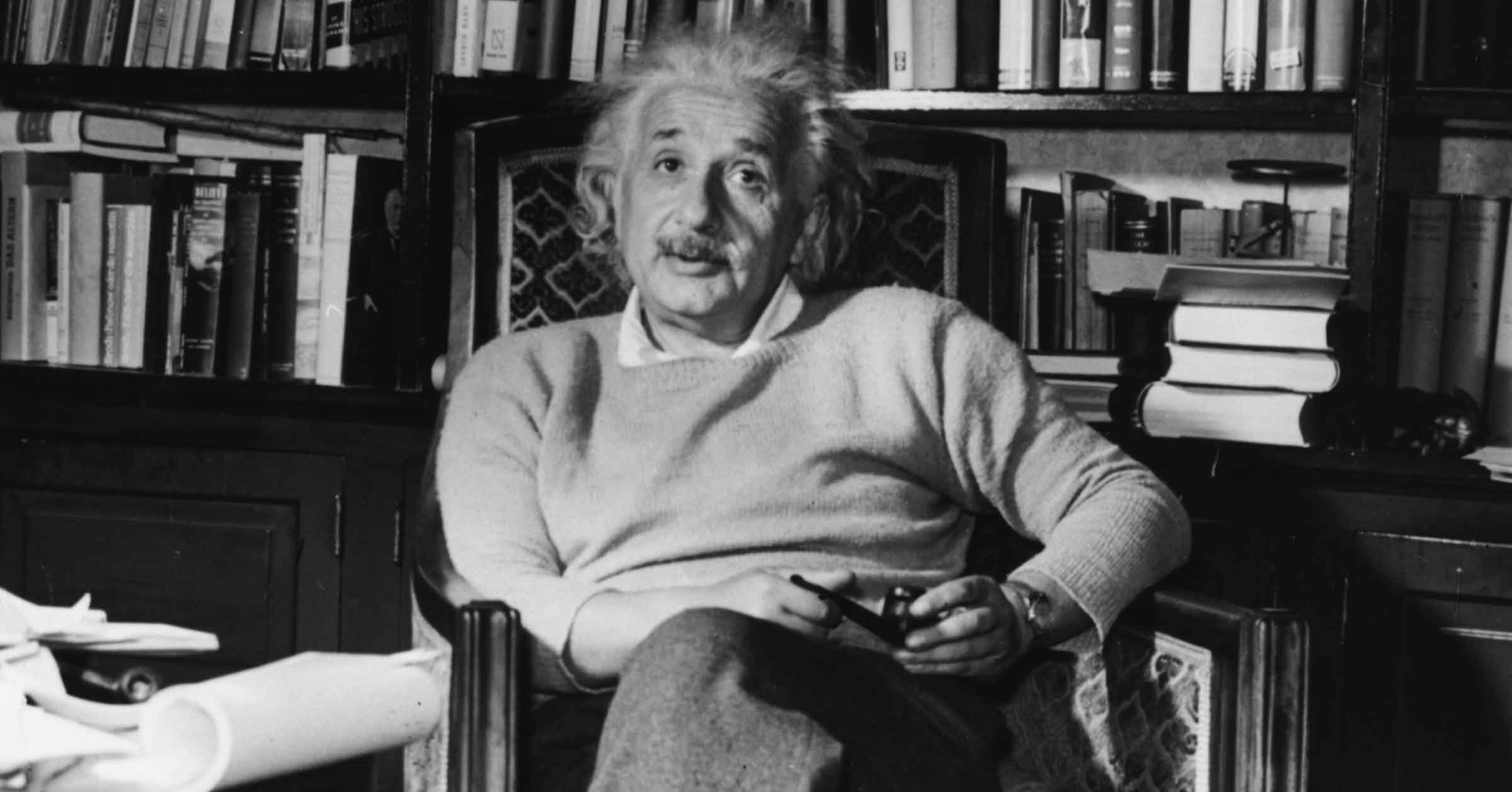There is a common story that a physicist was once asked what weapons would be used in the event of a third world war. He allegedly replied: “I don’t know, but in the fourth - with stones and sticks.” We checked whether Einstein was actually the author of this expression.
A saying attributed to Albert Einstein is found both in websites with collections of quotes, and on resourcesdedicated to military topics. In 2018, during “Direct Line with Vladimir Putin,” the Russian President was asked the question: “Will there be a third world war?” Putin replied: “You know, you can remember Einstein, in my opinion. He said: I don’t know by what means the third world war will be fought, but the fourth will be fought with stones and sticks.”
Although Einstein knew for sure about the dangers of nuclear weapons, we were unable to find reliable confirmation that the phrase about sticks and stones belonged to him. In March 1947, in one of the American newspapers appeared note about a dinner party attended by a physicist. The reporter recounts a dialogue between him and his friends in which Einstein says: “I do not know what weapons will be used in the third world war, but there is no doubt what weapons will be used in the fourth.” To the subsequent clarifying question from his interlocutor, the scientist answered: “Stone spears.” Similar story fixed and in the 1948 source, but there Einstein no longer answers “stone spears,” but simply “stones.” The same answer from the scientist appears and in a 1949 interview.
But was Einstein the person who first used this expression in one form or another? In September 1946, reporters at Bikini Atoll, where nuclear weapons were being tested, communicated with the military personnel who served there. When asked by a journalist what weapons would be used in the next war, the unnamed lieutenant replied: “I don’t know. But in the war after the next war - certainly spears! A month later, journalist Walter Winchell in a slightly altered form published this dialogue again. In 1947, also citing an unnamed officer, a quote used Arthur Beeley is director of the Institute of International Affairs at the University of Utah. True, in his retelling it is no longer spears that appear, but “bows and arrows.”
Thus, the famous scientist actually used a similar phrase more than once, but sources record different formulations. None of them specifically mention “stones and sticks.” Moreover, almost identical statements referring to an unnamed American military man appear in sources from 1946, while the earliest mention in connection with Einstein did not appear until the following year. Apparently, the phrase about how contrasting the weapons used in possible future world wars might be was quite common among parts of American society in the second half of the 1940s. Einstein is credited with being the most famous person to pronounce it. At the same time, the scientist spoke about stone spears and stones, but the wording with “stones and sticks” probably appeared later.
Photo: Lucien Aigner/Stringer/Getty Images
Half-truth
- https://www.snopes.com/fact-check/einstein-world-war-iv-sticks-stones/
- https://quoteinvestigator.com/2010/06/16/future-weapons/
If you find a spelling or grammatical error, please let us know by highlighting the error text and clicking Ctrl+Enter.






